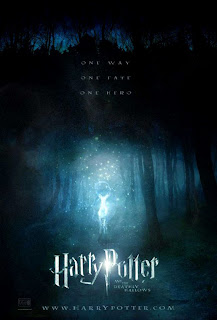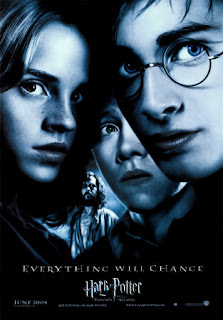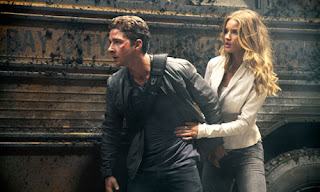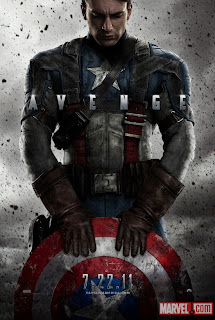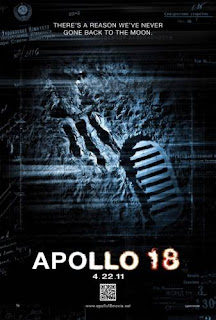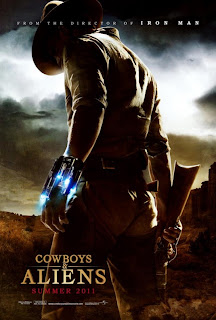Every year in January, I write a column pinpointing the 10 films I'm most looking forward to in the next 12 months. This year I changed it up and split the column into January through June and July through December. This was done in part because after the abortion that was the 2010 movie calendar, I was overly excited about pretty much everything that was to open this year and in part because in January, no one really knows for sure what Award Season will bring. I'm certain there will be a "King's Speech" somewhere along the line, an indie-type film I hadn't really heard of comes along late and sets the world on fire so this list is far from the authority. But still, I know much more about what to expect from the latter months now, at the end of June, than I did at the beginning of January. So without further adieu, and bearing in mind my propensity for getting worked up over sci-fi, superheroes, and general nerdery, I give you my top 10 most anticipated films for the rest of the year.
Honorable Mention:
Captain America: The First Avenger (July 22) - Chris Evans, Hugo Weaving, Tommy Lee Jones
Despite the fact that it doesn't quite crack the Top Ten, I'll definitely be in line at midnight for the "Captain" and I'm digging the visuals in the trailer. Not sure I trust Evans, though.
Another Earth (July 22) - Brit Marling, William Mapother
High concept sci-fi mixed with a tragic love story. I've been back and forth on what my level of interest is here but I saw a trailer earlier this week and my interest is supremely piqued. Doesn't make the list because it'll probably be limited which means I won't see it until February. Blerg.
The Girl with the Dragon Tattoo (December 23) - Daniel Craig, Rooney Mara, Christopher Plummer
Could be the biggest hit of the season though it's always hard to tell with an R rated film. The book is excellent; an incredible read and a smashing success that just about every human read. That said, however, the book was disturbingly heavy for me. After finishing, I wanted to begin the sequel immediately but my mind needed a break. That break has now lasted six months and approximately ten books. Can't imagine that the film will be any less engrossing and disturbing.
10. Apollo 18 (September 2)
A fauxumentary (don't like calling these films mockumentaries as they're not funny and therefore not mocking) in the vein of "Blair Witch Project" that focuses on the Apollo 18 mission to the moon that didn't happen but for the sake of this movie did happen and the crew was attacked by aliens. I'm really enjoying this run of low budget, high concept sci-fi films that we're getting these days as a result of the success of films like "District 9." Totally in for this.
9. Mission Impossible: Ghost Protocol (December 16) - Tom Cruise, Simon Pegg, Jeremy Renner
Look, I know I probably shouldn't be excited about a fourth "Mission Impossible" film but the trailer has reignited the odd affection I have for this franchise (except the second one which deserves to have all copies rounded up and burned "Fahrenheit 451" style). They're ridiculous, of course, but they're fun and relatively intelligent while being ridiculous and I can get into that. And I'm very interested to see if director Brad Bird ("The Incredibles", "Up") can bring it in a live action film like he can in an animated one.
8. Contagion (September 9) - Matt Damon, Kate Winslet, Marion Cotillard, Jude Law
This is the part of the column where I get excited about a drama no one knows much about and by the time it actually opens, I don't care anymore. I just can't change my ways. "Contagion" is about (duh) the outbreak of a terrible disease and the team of doctors that are brought in to fight it. Aside from the Damon connection (who ALWAYS gets me to the theater no matter what), this film has a dynamic director (Steven Soderbergh) and a killer cast (John Hawkes, Gwyneth Paltrow, and Bryan Cranston in addition to those listed above) and I'm really intrigued.
7. Crazy, Stupid, Love. (July 29) - Steve Carrell, Ryan Gosling, Julianne Moore, Emma Stone
After his wife leaves him, a middle age man (Carrell) seeks the counsel of a womanizing dating expert (Gosling) who has problems of his own. This has a great cast and seems to bring a healthy amount of dark humor to a tough narrative. I also really like that Carrell apparently insisted upon bringing in Gosling despite his relative lack of experience in the comedic realm. Could be an awesome combo.
6. Cowboys and Aliens (July 29) - Daniel Craig, Harrison Ford, Olivia Wilde
It's an action movie that features...um...cowboys and aliens. Do you need another reason to enjoy this movie? Yes? How about a director (Jon Favreau) who is on the cusp of earning my unending trust? I'm sure this will be insanely over the top but I'm really, really excited about it.
5. Sherlock Holmes: A Game of Shadows (December 16) - Robert Downey, Jr., Jude Law, Jared Harris
I know nothing of the plot and I don't want that to change. I looovvvvvveeee the first "Holmes" film. The chemistry between RDJ and director Guy Ritchie is exquisite and the mix of action, caper, and action movie fun is absolutely brilliant in my mind. ("Biggest Celebrity Crush of my Life" Rachel McAdams doesn't hurt, either.) I'm a little worried that this was rushed considering a sequel wasn't definite until after the original became a smash hit and I'm slightly disappointed that the villain, Moriarty, isn't being played by a bigger name (Jared Harris) but that won't keep me away.
4. We Bought a Zoo (December 23) - Matt Damon, Scarlette Johansson, Elle Fanning
The first film (excluding the Pearl Jam doc that's also due later this year) from Cameron Crowe in six years, "Zoo" focuses on a family that purchases and reopens a shoddy zoo. I've already spoke of my love for Damon so let me now say that Crowe is an immediate draw for me. Aside from "Vanilla Sky" (horrible and overambitious) I like every single thing the guy has ever done. If there was no such thing as "The Shawshank Redemption" or "Star Wars," there's a chance that "Almost Famous" would be my favorite film of all time. I also may be the only person besides Cameron himself who actually likes "Elizabethtown." In a year that (so far) finds itself lacking in Academy Award level films, this screams "Awards!" and I'm extremely excited about it.
3. The Muppets (November 23) - Jason Segal, Amy Adams
Even without the AWESOME fake-trailer marketing campaign "Muppets" has undergone, I would be chomping at the bit to see this. If you don't like muppets you're not human. Period.
2. Tinker, Tailor, Soldier, Spy (November 18) - Gary Oldman, Colin Firth, Tom Hardy, Mark Strong
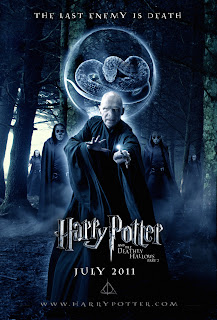
During the Cold War, an aging spy (Oldman) is called out of retirement to track down a Soviet mole within MI6. I'm not familiar with the book nor the British TV series this is based off of but if the plotline and the awesome surrounding cast wasn't enough to get me interested, Oldman in a starring role is a surefire way to get me to the theater. Throughout this column I have resisted the urge to refer to RDJ and Matt Damon as my favorite actor because, while both of them are incredible and I value their contributions to film, when he's on his game and in a worthy role, NO ONE is better than Oldman. Absolutely cannot wait for this one.
1. Harry Potter and the Deathly Hallows: Part 2 (July 15) - Daniel Radcliffe, Rupert Grint, Emma Watson
Never really any doubt as to where this one would rank on the anticipation scale. I've already bought tickets for a midnight screening and my little group of nerds and I are currently working our way through the ultimate Blu Ray editions of each film. No fictional universe aside from "Star Wars" has ever sucked me in the way the Potter world has, not even Tolkein's. I love these books and these films more than I love some family members. The only question is whether or not I'll be able to control my emotions or if I'll end up weeping like a small child by the end.
That about does it. I'm looking forward to the surprises that will no doubt pop up along the way but these are the ones that have my attention right now. Feel free to share your own choices!



